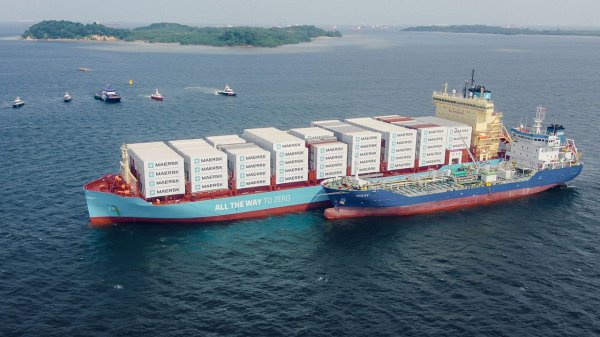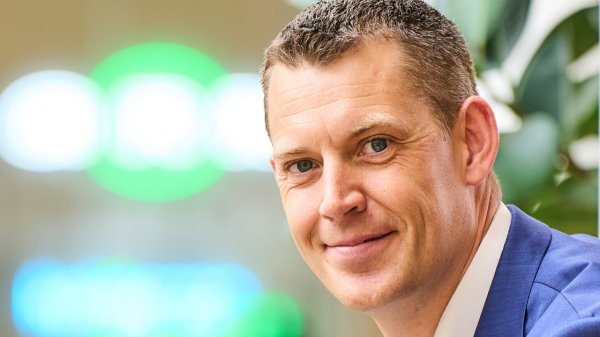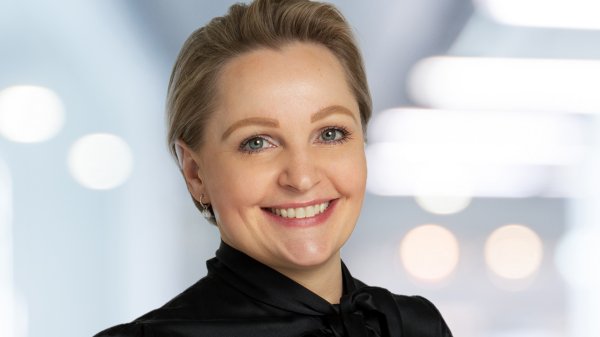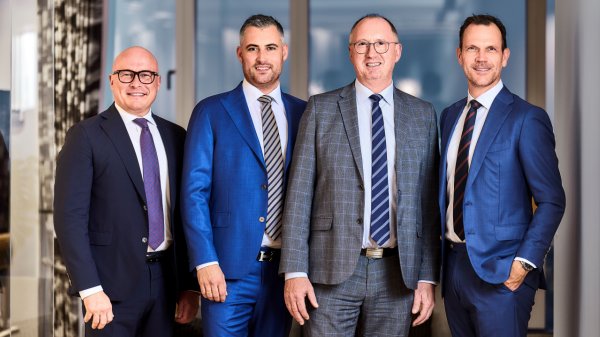Quadrise delivers presentation to shareholders at AGM
MSAR fuel supplier discusses 2017 performance and presents outlook for next year.
Quadrise Fuels International plc - an emerging manufacturer and supplier of MSAR emulsion fuels - made a presentation to shareholders at its annual general meeting (AGM), held on Friday in London.
During the presentation, Quadrise said that 2017 had been a "challenging year", but also stressed that "demonstrable progress" had been made.
Difficulties this year included Maersk pulling out of the MSAR fuel trial; the protracted process of Wartsila's letter of no objection (LONO) and interim inspection report covering the use of MSAR fuel in its RT-flex two-stroke diesel engines; delays to the signing of commercial-scale trial agreements in Saudi Arabia; and the implementation of cost-cutting initiatives, including salary reductions.
Quadrise highlighted its key achievements in 2017 and defined its outlook for next year. The company said its Marine MSAR trial had "progressed well" and that it had received "positive operational feedback" from both Maersk and Wartsila.
Production of MSAR fuel at CEPSA's San Roque refinery had reached 6,000 barrels per day within nine months of sign-off and the plant moved to a two-shift production schedule in January - operating the MSAR Manufacturing Unit (MMU) on a 24-hour basis from early 2017 to supply larger batches.
In Saudi Arabia, meanwhile, Quadrise said preparations for a commercial-scale trial were "progressing with major stakeholders".
Quadrise also highlighted its recent deal with Japanese engineering contractor, JGC Corporation, in which JGC is to act as QFI's exclusive partner to work with prospective producers and consumers of MSAR in Japan, Colombia, Peru and elsewhere on a case-by-case basis to jointly develop commercial MSAR projects.
Regarding the commercialization of MSAR, Quadrise has reiterated throughout the year that it believes the marine industry will adopt the use of exhaust gas cleaning systems (EGCSs) in conjunction with high-sulphur heavy fuel as the most economic compliance option for the upcoming 0.5 percent global sulphur cap in 2020. MSAR fuel has so far been supplied with a sulphur content above 0.5 percent - meaning that it would need to be used with a scrubber from 2020 onwards.
During Friday's presentation, Quadrise mentioned that cruise and ferry operators were the leading adopters of EGCSs. It noted that Carnival, for example, had invested heavily on EGCSs for its ships. The cruise operator aims to deploy scrubbers on more than 85 vessels across its global fleet by 2020.
In its outlook for next year, Quadrise said it would look to "leverage" the MSAR marine trial to progress business deals with ship operators; that there was "substantial commercial opportunity" in the power and marine sectors; and that its partnership with JGC was a "catalyst for accelerated commercial development".
Quadrise also noted on Friday that all resolutions proposed at the AGM were passed.
During the presentation, Quadrise said that 2017 had been a "challenging year", but also stressed that "demonstrable progress" had been made.
Difficulties this year included Maersk pulling out of the MSAR fuel trial; the protracted process of Wartsila's letter of no objection (LONO) and interim inspection report covering the use of MSAR fuel in its RT-flex two-stroke diesel engines; delays to the signing of commercial-scale trial agreements in Saudi Arabia; and the implementation of cost-cutting initiatives, including salary reductions.
Quadrise highlighted its key achievements in 2017 and defined its outlook for next year. The company said its Marine MSAR trial had "progressed well" and that it had received "positive operational feedback" from both Maersk and Wartsila.
Production of MSAR fuel at CEPSA's San Roque refinery had reached 6,000 barrels per day within nine months of sign-off and the plant moved to a two-shift production schedule in January - operating the MSAR Manufacturing Unit (MMU) on a 24-hour basis from early 2017 to supply larger batches.
In Saudi Arabia, meanwhile, Quadrise said preparations for a commercial-scale trial were "progressing with major stakeholders".
Quadrise also highlighted its recent deal with Japanese engineering contractor, JGC Corporation, in which JGC is to act as QFI's exclusive partner to work with prospective producers and consumers of MSAR in Japan, Colombia, Peru and elsewhere on a case-by-case basis to jointly develop commercial MSAR projects.
Regarding the commercialization of MSAR, Quadrise has reiterated throughout the year that it believes the marine industry will adopt the use of exhaust gas cleaning systems (EGCSs) in conjunction with high-sulphur heavy fuel as the most economic compliance option for the upcoming 0.5 percent global sulphur cap in 2020. MSAR fuel has so far been supplied with a sulphur content above 0.5 percent - meaning that it would need to be used with a scrubber from 2020 onwards.
During Friday's presentation, Quadrise mentioned that cruise and ferry operators were the leading adopters of EGCSs. It noted that Carnival, for example, had invested heavily on EGCSs for its ships. The cruise operator aims to deploy scrubbers on more than 85 vessels across its global fleet by 2020.
In its outlook for next year, Quadrise said it would look to "leverage" the MSAR marine trial to progress business deals with ship operators; that there was "substantial commercial opportunity" in the power and marine sectors; and that its partnership with JGC was a "catalyst for accelerated commercial development".
Quadrise also noted on Friday that all resolutions proposed at the AGM were passed.

|
How to engineer and manage green shipping fuels | Stanley George, VPS
Effective management strategies and insights for evolving fuel use. |
|
|
|
||

|
Swedish government bans scrubber wastewater discharges
Discharges from open-loop scrubbers to be prohibited in Swedish waters from July 2025. |
|
|
|
||

|
MAN Energy Solutions achieves 100% load milestone for ammonia engine
Latest tests validate fuel injection system throughout the entire load curve. |
|
|
|
||

|
Petrobras secures ISCC EU RED certification for B24 biofuel blend at Rio Grande
Blend consisting of 24% FAME is said to have been rigorously tested to meet international standards. |
|
|
|
||

|
Stolt-Nielsen to fully control Avenir LNG with acquisition
Share purchase agreement to buy all shares from Golar LNG and Aequitas. |
|
|
|
||

|
Bureau Veritas supports launch of CIMC SOE's LNG bunkering vessel
Handover of Seaspan Energy's cutting-edge 7,600-cbm vessel completed. |
|
|
|
||

|
Methanol as a marine fuel | Steve Bee, VPS
How environmental legislation has driven the development of low-sulphur fuels and methanol-ready ships. |
|
|
|
||

|
Martin Vorgod elevated to CEO of Global Risk Management
Vorgod, currently CCO at GRM, will officially step in as CEO on December 1, succeeding Peder Møller. |
|
|
|
||

|
Dorthe Bendtsen named interim CEO of KPI OceanConnect
Officer with background in operations and governance to steer firm through transition as it searches for permanent leadership. |
|
|
|
||

|
Bunker Holding revamps commercial department and management team
CCO departs; commercial activities divided into sales and operations. |
|
|
|
||
Related Links
- · Quadrise signs memorandum of agreement with JGC Corporation [Insights]
- · Quadrise issues activity update following 'media speculation' [Insights]
- · Quadrise posts loss in annual results [Insights]
- · Quadrise 'knows of no specific reason' for share price drop following rally [Insights]
- · Quadrise announces cost-cutting initiatives as chairman slashes salary by 50% [Insights]
- · United Kingdom [Directory]

